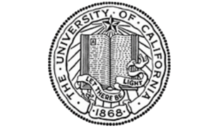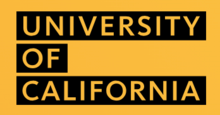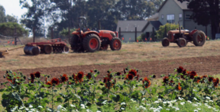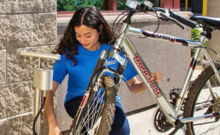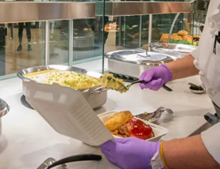Office of Sustainability

Resources
Alternative Transportation at UC Riverside
Explore alternative transportation options at UCR, including public transit, ride-sharing, and human-powered commuting. These sustainable alternatives provide diverse choices for the UCR community to reduce their environmental impact and enhance commuting flexibility. Learn more about Alternative Transportation.
CalEnviroScreen 4.0
CalEnviroScreen is a science-driven mapping tool designed to pinpoint California communities facing heightened exposure to multiple pollution sources. Utilizing environmental health and socioeconomic data, the tool assigns a numerical score to each census tract in the state, aiding in the identification and assessment of areas most affected by pollution. Learn more about CalEnviroScreen.
Policy on Sustainable Practices
The Sustainable Practices Policy outlines objectives in 13 key areas to promote sustainability. These areas include green building, clean energy, climate action, transportation, sustainable operations, zero waste, procurement, food service, water, health care, performance assessment, health and well-being, as well as diversity, equity, inclusion, and justice. The policy aims to guide and encourage sustainable practices across various facets of an organization or community. Learn more about Policy on Sustainable Practices.
Climate Labs by UC and Vox
Climate Labs, a collaboration between the University of California and Vox, follows the journey of conservation scientist M. Sanjayan, who is also a UCLA visiting researcher. The series explores innovative and unexpected approaches to transform our perspectives and behaviors regarding climate change. Produced by the University of California and Vox, Climate Labs offers insightful narratives to inspire positive action and awareness of environmental issues. Learn more about Climate Labs.
UCR Global Food Initiative
The University of California's Global Food Initiative (GFI) tackles the pressing challenge of sustainably and nutritiously feeding a growing global population, expected to reach 8 billion by 2025. Drawing on expertise and resources from its 10 campuses, UC GFI actively engages in collaborations to address social, economic, political, and ecological issues at the nexus of agri-food systems, health, and sustainability. Learn more about UCR Global Food Initiative.
Bicycling at UCR
Choose active transportation for eco-friendly and healthy mobility at UCR. Biking, walking, or using a scooter not only saves money but also reduces your carbon footprint. UCR holds a bronze-level designation as a Bicycle Friendly University, recognized by the League of American Bicyclists. Learn more about Bicycling at UCR.
UCR Dining Sustainability
At Dining, Waste Diversion is UCR Dining's key focus, emphasizing the principles of REDUCE, REUSE, RECYCLE, and COMPOST. Their commitment to achieving zero net waste includes an active effort to eliminate single-use plastics. They're working diligently with third-party tenants to reduce the usage of single-use plastic to-go containers across our venues. Learn more about Dining Sustainability.

